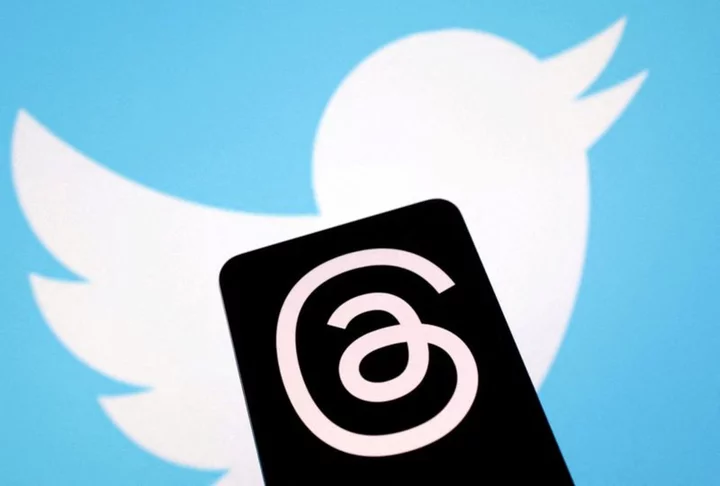By Jody Godoy
Twitter's claim that Meta Platforms stole trade secrets to build its new microblogging site may be the first volley in a legal battle between the social media giants, but experts say Twitter would have to clear a high hurdle if it sues.
In a letter sent on Wednesday, Twitter alleged that Meta used its trade secrets to develop its new social media platform, Threads, and demanded that it stop using the information. Twitter said that Meta had hired dozens of former Twitter employees, many of whom "improperly retained" devices and documents from the company, and said Meta "deliberately" assigned them to work on Threads.
It was unclear whether any lawsuit would be filed.
A spokesperson for Twitter did not immediately reply to a request for comment. Meta spokesperson Andy Stone said in a Threads post on Thursday that no one on the site's engineering team is a former Twitter employee.
Legal experts said that while many companies have accused competitors that hired former employees and have a similar product of stealing trade secrets, the cases are difficult to prove.
To win, a company needs to show its competitor took information that was economically valuable and which the company had taken "reasonable efforts" to keep secret, said Polk Wagner, a law professor at the University of Pennsylvania.
But the question of what constitutes a "reasonable effort" can be tricky, he said.
"The courts are pretty clear that you can't just waive your hands and say something is a trade secret. On the other hand, you don't have to lock everything down so much that nobody can use the information," Wagner said.
DESIGNATING 'SECRETS'
Meta launched Threads on Wednesday in what could be the first real threat to Twitter, which has alienated many users and advertisers since billionaire Elon Musk bought the microblogging site last year.
Threads shares some resemblance to Twitter, as do the numerous other social media sites that have cropped up in the last several months.
One element courts look at is whether a company made clear to employees that the specific information at issue was a trade secret.
Sharon Sandeen, a professor at Mitchell Hamline School of Law in St. Paul, Minnesota, said that companies have lost trade- secret cases when they claimed that employees were bound by broad agreements designating all the company's information as confidential.
Courts have said that employees have no way of knowing from such sweeping language what is and is not confidential, she said.
Companies often bring trade-secret cases only to find their claims are not as strong as they thought, experts said.
Sandeen pointed to the high-profile legal battle between Alphabet's Waymo self-driving vehicle unit and ride-share company Uber Technologies. The case began with allegations of thousands of stolen documents, and ended with a dispute over a small handful, she said.
Uber settled the case on the eve of trial for $245 million worth of its own shares.
While trials are rare in trade-secret cases, settlements are common, said Wagner.
"The incentives to settle in these sorts of cases are especially strong because nobody wants the secrets being discussed more than necessary," he said.
(Reporting by Jody Godoy in New York; Editing by Noeleen Walder and Matthew Lewis)

